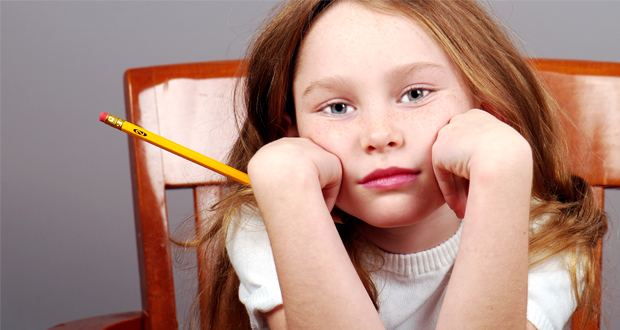The latest snapshot of Australia's youth shows the wellbeing and performance of school aged children is on a downward slide.
Released today, the Australian Research Alliance for Children and Youth (ARACY) Report Card: The Wellbeing of Young Australians, places Australia in the middle of the pack among the world's developed nations, and calls on the federal government to prioritise improving the wellbeing of young people.
The report ranked Australia in the bottom third of all OECD countries in a number of education indicators, including primary school bullying, youth numeracy skills, feeling of belonging at school, pre-primary enrollment rate, and school-related pressure.
Australia was also ranked poorly in neighborhood safety, childhood obesity, whooping cough and measles vaccinations, teenage pregnancy, cost of childcare, and children living in jobless households.
The nation sits in the middle third of countries for most of the rankings, including youth unemployment; the number of teens not in education or training; mathematics, science and literacy performance; average class size; gender gap in educational achievement; and participation in post-school education.
ARACY chief executive Stephen Bartos said a good summary of the report would be that Australia is trying hard but could do better.
“Every young person deserves a chance to succeed in life. We are doing well by some measures, but on far too many the data shows large numbers of Australian kids are missing out," he said. "A particular concern is too many Aboriginal and Torres Strait Islander kids are not getting a fair go.
“It is up to all governments to take the lead, for example, by placing a minister with cross-cutting responsibility for children at the cabinet table.
“We also ask all premiers and chief ministers to consider ways to ensure Australia’s children are a top priority. Making the issues young Australians face a regular item on the COAG agenda may also be a useful step.
“Helping all young Australians to reach their potential requires a more coordinated approach. Young people depend on a range of policies and services including health, education, employment, and justice, all of which work better when they cooperate and align.
“However it is to be done, Australia’s children must be given top priority.”
A comparison of ARACY statistics showed that student performance in mathematics, reading and science was on the decline, while the number of students who stayed on until year 12 and applied for post-school studies had increased.
Among the key findings of the report, Bartos said statistics showed a steep fall in the number of immunised children, an increase in mental illness among teens and more challenges for Aboriginal and Torres Strait Islander Australians.
Despite this, Bartos was hopeful that Year 12 completion rates for Aboriginal Australians were moving towards improvement.
“We’ve seen Year 12 retention rates in Aboriginal and Torres Strait Islander communities improve faster than the average between 2011 and 2017," he said.
"The continuation of this type of success in Indigenous education will be a major factor in helping to improve the wellbeing of these Australian children."
Education Minister Simon Birmingham responded to the report, and said another Gonski review to be handed down by the end of the month would help address the concerns raised.
"These are concerning figures and they do reinforce much of what the Government has said over the last few years and what I’ve said over the last couple of years, which is that whether you look at it in comparative terms with other nations, or indeed in absolute terms of Australia’s own performance, we have been seeing a decline or a stagnation in other areas around reading skills, maths skills, numeracy skills, science skills and so forth," he said.
"That is a real worry and it continues to frustrate me that we see political activists in education call for the Federal Government to take a back seat when it comes to policy, yet argue over funding issues; when in reality we must work as a nation to identify the best practice, evidence-based measures to lift performance and turn around these results.
"I don’t want to pre-empt what David Gonski and the panel of very highly qualified and talented educators working within will report on, but I am confident that what we will be doing is going back to the states and saying that more is required in terms of the focus we place in those early years around foundational skills and making sure that they are attained.
"Because, again, research is clear, if a child is behind by year three in terms of developing the basic skills, it’s really hard for them to catch up from thereon in."
This is the third ARACY Report Card, with previous editions released in 2013 and 2008.
It was created using the latest available data from sources such as the Australian Bureau of Statistics and the OECD, and was funded by the Australian Government Department of Social Services.
Do you have an idea for a story?Email [email protected]
 Education Review The latest in education news
Education Review The latest in education news
